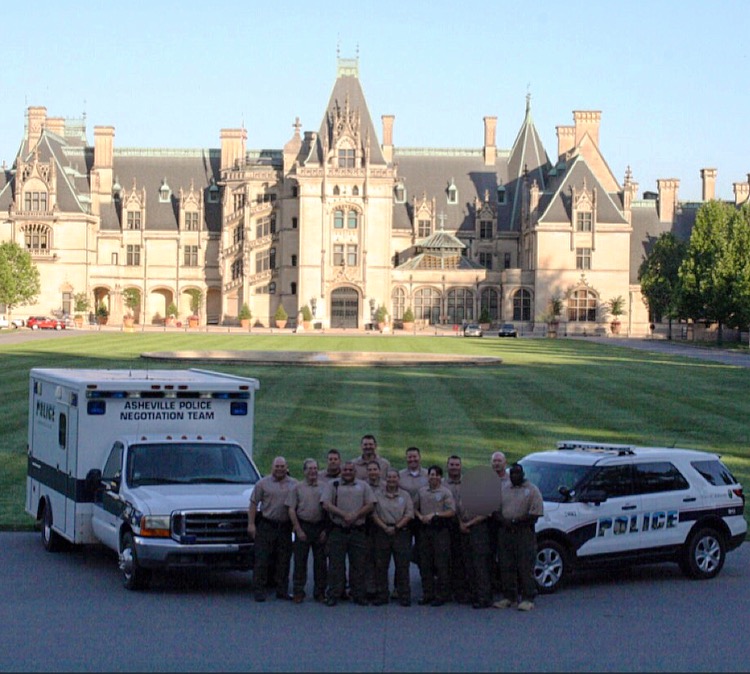“Die Hard, “The Negotiator” and “Speed. What do all of these movies have in common? They all involve actors portraying skilled crisis negotiators assisting in the rescue of hostages. At the Asheville Police Department we don’t employ actors, but rather officers trained to effectively communicate with people who are in a crisis situation. A team of 14 officers makes up the Crisis Negotiation Team (CNT). They play a vital role in the protecting and serving citizens and visitors to the City of Asheville.
The team’s primary mission is to protect life and reduce the probability of injury to officers, citizens, victims and subjects. The team responds to individuals in crisis situations and works to communicate with them in a way that facilitates a rational thought process for that individual. Negotiators are used in both hostage and non-hostage situations.
- Hostage: A person being held involuntarily by another person as leverage to force fulfillment demands on a third party (i.e. hostage taker(s) and barricaded subject(s)).
- Non-hostage: Emotionally driven situations with no substantive demands and the person does not need anything from the police (i.e. person(s) threatening suicides).
Members of the Crisis Negotiation Team serve in this capacity in addition to their full-time position. The 14 members are divided into two teams. Each team is on call 24/7 every other month. Prior to serving on the team applicants participate in a panel board interview and a negotiation scenario. The scenario is designed to identify active listening and de-escalation skills.
As in all aspects of police work, one round of training does not make one an expert. Negotiators must undergo demanding preparation and instruction to continually bring intense emergency situations under control. Traditionally, the Asheville Police Department has utilized the FBI Crisis Negotiation Training held at the North Carolina Justice Academy and the institute of Police Technology and Management (IPTM) located in Jacksonville, Fla., to fulfill training needs. All of these courses are 40 hours.
A crisis negotiation team must consist of at least four members, not factoring in the team leader. All of the roles are interdependent upon one another, therefore functioning as a cohesive group is vital to any incident’s success.
- Primary negotiator – The role of the primary negotiator is to establish contact and initiate conversation with the subject. The goal is to establish a rapid, yet trusting relationship culminating in the termination of the seizure.
- Secondary or backup negotiators – Secondary negotiator responsibilities include conferring with, and providing support for, the primary negotiator and preserving an atmosphere conducive to negotiation in the tactical operations center.
- Scribe – Accountable for documenting the details of the negotiation. This provides a chronological record that is useful in any future proceedings and to reconstruct the event as needed.
- Intelligence coordinator – Responsible for gathering information about the perpetrator(s), hostage(s), victim(s) and the physical scene.
- Team commander/leader – The team leader assists in planning the overall negotiation strategy. This position is also a trained negotiator.
Crisis and hostage negotiation is used across the county and around the world. Fifty-six percent of these situations are resolved through negotiation and 97 percent are negotiated with no injuries to law enforcement or bystanders. Crisis negotiation techniques have been proven time and time again. The Asheville Police Department is proud to have the ability to offer this service to residents of, and visitors to, our community.
